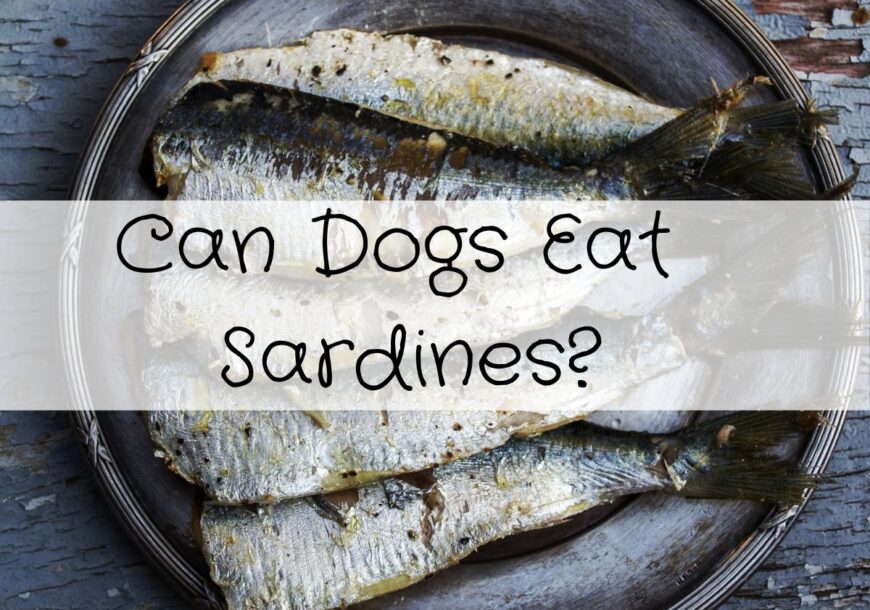Sardines are a favorite fish among dogs. They are high in vitamins, minerals, good fats, and protein. They are extremely important in your dog’s nutrition. Sardines must be carefully selected and served for your dog to benefit. Sardines in cans are high in coenzyme Q10, omega-3 fatty acids, and protein. Because sardines are small and low on the food chain, they have low mercury content when compared to other fish. Sardines, like other foods, can make a dog ill if consumed in large quantities. Sardines are high in fat and salt, and if your dog consumes too many of them, it may cause gastrointestinal problems such as vomiting and diarrhea, as well as more serious issues such as pancreatitis or sodium overdose. Simply open the can and sprinkle some in your dog’s bowl. When given once a week, one sardine per day for smaller dogs and two per day for larger breeds is sufficient.
Can dogs eat sardines every day?
Yes! Sardines are one of the healthiest types of fatty fish to feed your dog. Sardines are not only nutritious but also high in several essential nutrients. Sardines can be eaten by dogs. The fatty fish provides vitamins and nutrients that support your dog’s immune system and have anti-inflammatory properties. Sardines are an excellent way to introduce your dog to the benefits of fish oils while also providing your pet with an additional source of protein.
Can Dogs Eat Sardines in Cans?
Sardines in canned or tinned form can be consumed by dogs in trace amounts. Instead of using olive or coconut oil to prepare your sardines, opt for sardines packed in spring water because fatty meals can irritate your stomach because of digestive problems such as pancreatitis, or cause weight gain. Fresh sardines can also be prepared. Avoid sardines packed in tomato sauce, and ensure that no salt or seasonings have been added.
Health Benefits of Sardines for Dogs:
Sardines have several health benefits for your pooch. They are:
- Sardines are high in protein, which can aid in muscle growth in your dog.
- Sardines provide many essential nutrients, amino acids, minerals, and vitamins to your dog. They’re high in calcium, coenzyme Q10, copper, vitamin B12, vitamin D, manganese, phosphorus, zinc, and selenium.
- Sardines contain omega-3 fatty acids, which can help improve your dog’s memory, brain functions, and eyesight.
How to feed sardines to dogs safely?
Fresh sardines can be fed to your dog either raw or cooked. When cooking fresh sardines, steam them rather than frying them in oil, as excess oil can be harmful to your pet’s health. Large bones should be checked for and removed because they can cause choking. If you want to feed your dog canned sardines, make sure the fish is packed in water rather than olive oil or tomato sauce, and that it hasn’t been seasoned with salt or other additives. Open the can and feed the canned sardines directly to your dog, or mix them into dry kibble or homemade dog food. Sardines should only be fed in small amounts to your dog.
Sardines are high in calories and nutrients, so a small amount goes a long way. One small sardine can contain up to 25 calories, roughly half of which come from fat and the other half from protein sources. Sardine overfeeding in dogs can result in weight gain and intestinal problems. Because of their richness, you should feed sardines in a quantity that accounts for their high caloric content. Dosage is not an exact science because each pet is unique and has different needs, but we were able to find some useful recommendations from the Whole Dog Journal to get you started. The following advice assumes that you feed your dog once a week.
Do dogs safely consume sardines?
Sardines are an excellent treat or meal addition for the majority of normal-weight dogs. Because of their high-fat content, they are probably not the best snack for dogs that are overweight, already consume a lot of fat, or have sensitive stomachs. If your dog has a history of pancreatitis or is predisposed to pancreatic inflammation, it is best to avoid sardines entirely.
Are sardine bones harmful to dogs?
Sardines can be bought whole or with the bones still attached. These tiny, edible bones soften to the point where they are barely visible during the pressure-cooking process in canned sardines. However, bones left in fresh or frozen sardines may be more difficult to break and may form sharp points on which a dog could choke. When looking for fresh or frozen sardines that are safe for dogs, choose deboned fillets rather than whole fish.
How should sardines be prepared for my dog?
If you buy tinned sardines, you can feed them to your dog right from the can. Furthermore, deboned jarred sardines require no additional preparation. Both are available in their entirety or bits. You can also pour the sardine-packing water over food or mix it with water to add flavor. Sardines packed in oil are the only sardines available in cans or jars, but they can still be fed to your dog in moderation. Remove the fish from their container and place them on a cloth for a few hours, rotating them frequently to drain the excess oil.
Conclusion:
Sardines are an excellent treat for your dog. They have many advantages due to their omega-3 composition. This can revitalize their fur, improve skin conditions, and even alleviate pain in dogs with joint problems. It’s a tasty snack that’s also good for your heart and brain. While there are a few minor risks to feeding sardines to dogs, many of these risks can be mitigated by purchasing canned, water-packed sardines. Depending on the size of your dog, one box of sardines may suffice. Do not over feed them as this could lead to weight gain. If your dog has a history of pancreatitis, avoid it at all costs.








